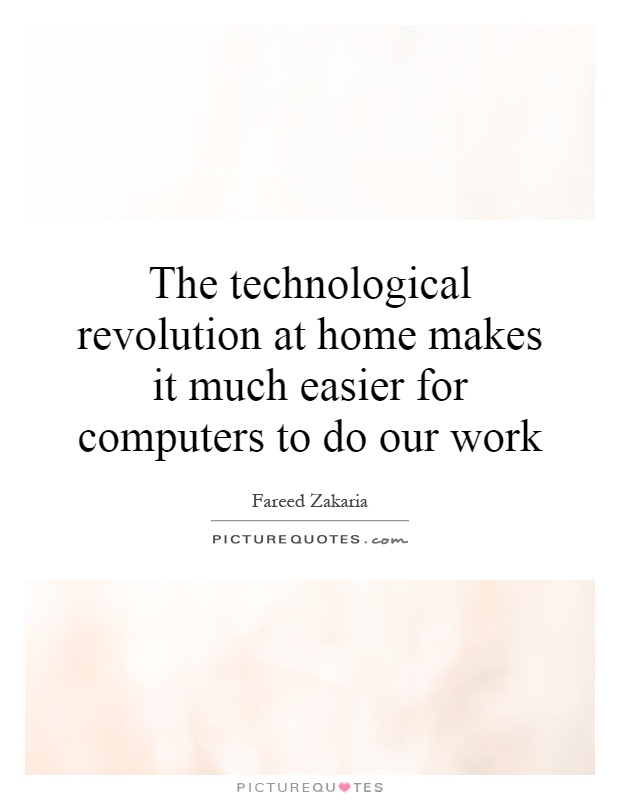The technological revolution at home makes it much easier for computers to do our work

The technological revolution at home makes it much easier for computers to do our work
Fareed Zakaria, a renowned journalist and author, has often discussed the impact of technology on various aspects of society, including the workplace. In his analysis, Zakaria has highlighted how the technological revolution at home has made it much easier for computers to do our work. This shift has significant implications for the future of work and the economy as a whole.One of the key points that Zakaria has emphasized is the increasing automation of tasks that were previously done by humans. With the advancement of artificial intelligence and machine learning, computers are now able to perform a wide range of tasks with greater speed and accuracy than ever before. This has led to concerns about the potential displacement of workers and the need for new skills in the workforce.
Zakaria has also pointed out that the technological revolution at home has enabled more people to work remotely. With the rise of telecommuting and flexible work arrangements, individuals can now perform their jobs from anywhere in the world as long as they have access to a computer and an internet connection. This has opened up new opportunities for workers to balance their professional and personal lives, but it has also raised questions about the future of traditional office spaces and the nature of work itself.
Furthermore, Zakaria has discussed how the technological revolution at home has democratized access to information and resources. With the internet and online tools, individuals can now learn new skills, connect with others, and access a wealth of information with just a few clicks. This has empowered people to take control of their own learning and development, but it has also raised concerns about the digital divide and the unequal distribution of technology resources.
Overall, Fareed Zakaria's analysis of the technological revolution at home sheds light on the profound changes that are taking place in the world of work. As computers become increasingly capable of doing our work, it is essential for individuals, businesses, and policymakers to adapt to these changes and ensure that the benefits of technology are shared equitably among all members of society.












 Friendship Quotes
Friendship Quotes Love Quotes
Love Quotes Life Quotes
Life Quotes Funny Quotes
Funny Quotes Motivational Quotes
Motivational Quotes Inspirational Quotes
Inspirational Quotes